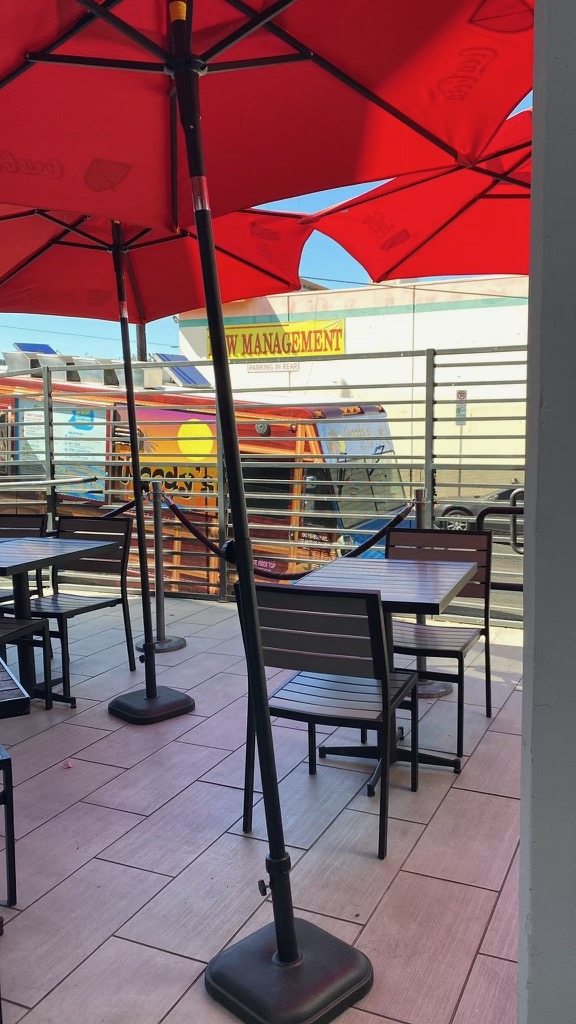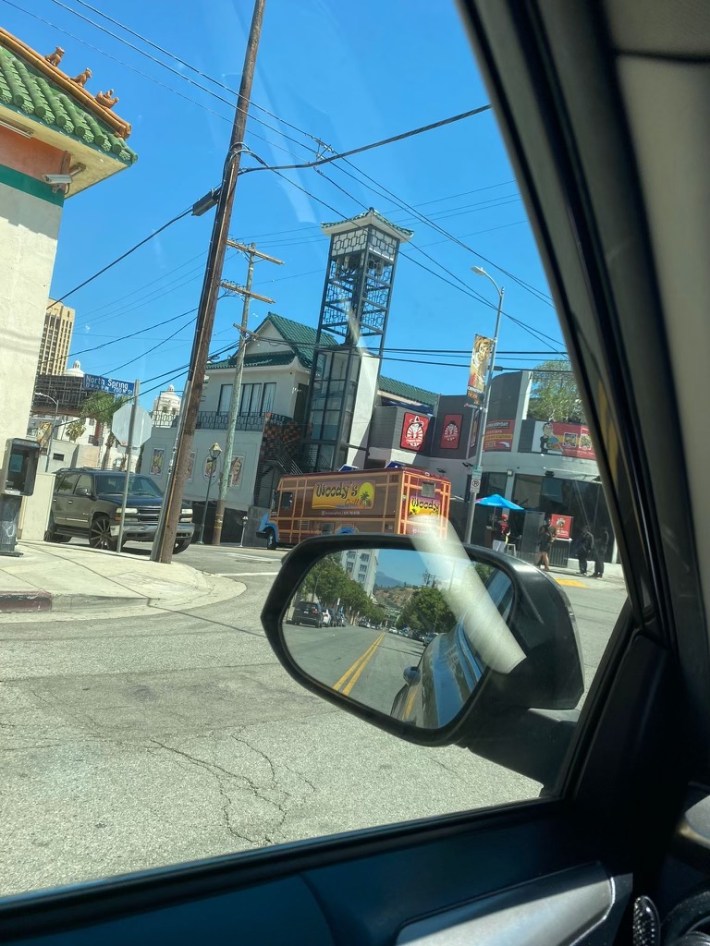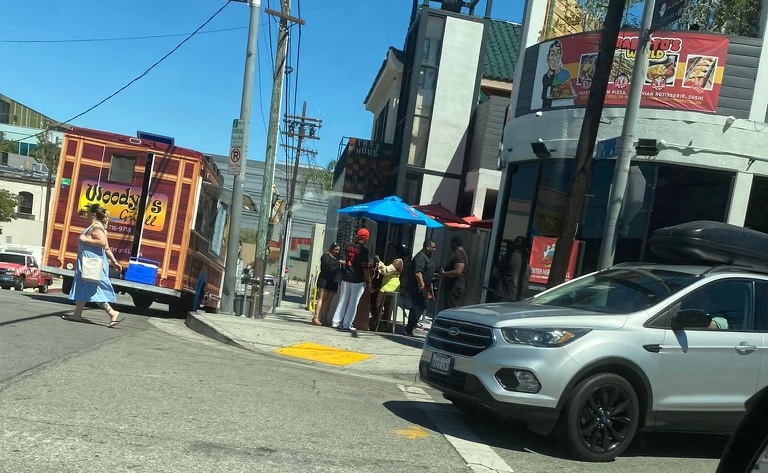L.A.’s informal economy revolving around the city’s Taco Life is full of unwritten rules and mutual, street-level respect among both brick and mortar businesses, food trucks, and street vendors. Nonetheless, territorial conflicts do come up. A video posted on Pablito’s Tacos Instagram account over the weekend, showing Pablito’s World owner Danny Rodriguez confronting the workers of the Woody’s Grill taco truck, parked directly in front of Rodriguez’s new restaurant in Chinatown, has brought up the age-old question: How far from a brick and mortar restaurant should a mobile food business set up, in order to show respect?
In the particular case of Pablito’s Tacos and Woody’s Grill L.A., the situation is further complicated because Woody’s Grill offers similar tacos on its menu.
“As other small business owners may know, you sacrifice a lot when you open a new restaurant in L.A.,” Rodriguez tells L.A. TACO. “There are certain ethics that come in having a food truck and rule number one is: You never park in front of a restaurant that sells the same thing.”
Rodriguez is a taquero who worked his way up from a taco stand to a taco truck and now a taco brick and mortar business. He still operates his popular taco stand in the Valley.
In the nearly three-minute-long video, Rodriguez walks up to the taco truck and asks to meet the owner. He shares with his viewers that Woody’s Grill has set up regularly right outside his door for two weekends now and while he let it slide at first, he eventually met the owner and asked him to kindly leave.
According to Rodriguez, the owner of Woody’s Grill apologized and agreed that it was not ethical, saying he was going to stop setting up right out front, only to show up the very next weekend after giving his word that he was not. In the video, a staff member at Woody’s refutes Rodriguez’s word.
“On weekends, I stay open until 3 AM because I know there is a nightclub here and serving them was in my business plan,” Rodriguez tells L.A. TACO “I noticed that Woody’s showed up specifically when I run a special and a line starts to form outside.”
L.A. TACO reached out to Woody’s Grill L.A. for comment yesterday and has not heard back.
While not as common as they were in the 90s and early 2000s, altercations over territory amongst street vendors, taco stands, food trucks, and brick-and-mortar taquerías still occur. Sometimes they make the news, like in January when the owner of a taco truck allegedly used a fire extinguisher to vandalize the mesquite grill of a taco stand in Whittier. But most of the time, they do not make headlines and stay unspoken among the taqueros and neighborhood. Over the last two years, many taqueros have come forth to L.A. TACO to share their own experiences about dealing with taco turf conflicts.


Earlier this year, Tacos Don Cuco informed us of an incident allegedly involving La Güera’s taco empire popping up on the same block and attempting to undercut them by selling cheaper tacos. In 2020, L.A. TACO was made aware of La Güera also allegedly sending local gangbangers to intimidate another popular taco trailer that would prefer to stay anonymous out of safety concerns. The anonymous trailer was set up more than a mile away from La Güera’s stand in City Terrace.
In 2021, L.A. TACO verified through screenshots of text messages exchanged that a well-known mariscos truck in Highland Park threatened El Ruso to not set up shop in the neighborhood when he was attempting to open a second trailer about four blocks away. El Ruso, who is a father and feared for his safety, took his business to Silver Lake instead.
Erin Glenn, the former chief executive officer of the Asociación de Loncheras, tells L.A. TACO that parking directly in front of a brick-and-mortar business goes against the best business practices that she and her former association of food trucks established. “It comes down to respect for both businesses. At the end of the day, a food truck is also a legitimate business and it is important for all food businesses to respect each other.”
“It comes down to respect for both businesses. At the end of the day, a food truck is also a legitimate business and it is important for all food businesses to respect each other.”
A dozen years ago, food trucks stood where street vendors currently find themselves: living and working in a gray area that wasn’t exactly “legal.” This was a time when people wore “Carne Asada is Not A Crime” t-shirts to spread awareness about the campaign to completely legalize selling out of a food truck.
Glenn’s years of bilingual organizing and advocating for unity among taco trucks was crucial to Los Angeles legalizing taco trucks a decade ago. “Just like how a lonchera doesn’t want another truck taking their spot. It is part of the unspoken mutual respect that all taqueros in L.A. abide by.”
Glenn does emphasize that this incident is an isolated event since the beef in L.A.’s Taco Life has a way of sorting these territorial conflicts out among themselves. At the time, Glenn went as far as publishing pamphlets sharing this street-level ethical standard of respecting taco space.
“This is an unfortunate event because it goes against what the Asociacíon de Loncheras worked hard for many years to prove: That taco trucks can live harmoniously with brick and mortars. It’s not a good look.”
When asked about whether police intervention is necessary to find a resolution, Glenn, like many other street vending advocates, agrees that it should remain unwritten and informally resolved.
“Police regulation of such matters would be a step back and be too much government oversight,” she says. “It would take us back to a time when laws were outright discriminatory against working immigrants.”






